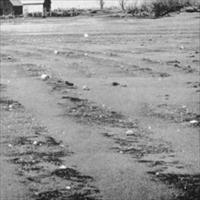ZIMBABWE: No middle ground for crops between drought and deluge

After six years of drought, the forecast was that Zimbabwe was set for good rains and a decent harvest this season - and then came the deluge.
The country has been pounded by torrential rains, with December 2007 the wettest month in 127 years, according to the metrological department. Localised flooding has claimed 21 lives, affecting around 5,000 people along the southeastern border with Mozambique, and a further 3,000 in Muzarabani district in the northeast of the country.
At the end of December the government declared a national disaster, with emergency units keeping a close watch on flood prone areas, UN agencies reported.
Farmers in flood-affected districts, who had planted early, trying to take advantage of the predicted good rains, have seen their crops drowned, along with hopes of a marketable surplus.
"We prayed for the rains but the rains have now caused us pain and suffering," said a despairing Esther Chiwodza, a communal farmer in the low-lying district of Chiredzi in Midlands Province.
She invested in seeds and fertiliser and planted early in October. "All the crops I spent my entire savings on have been washed away and there is no prospect of saving any crops, as the whole fields are waterlogged and the remaining crops will not survive the current rains."
Neighbours lost livestock and homes collapsed. "After the rainy season is over everyone in my village will become a candidate for food aid, and if the donor agencies do not come we will starve to death," said Chiwodza.
Zimbabwe Farmers Union president Silas Hungwe said while the heavy rains had delayed planting in some areas, and crops were waterlogged in others, it was too early to tell what the impact on national production would be.
"We pray that we get a two to three weeks' let-up in rainfall so that we save some of the crops, but if that does not happen then our crops will die," Hungwe said.
Over 50 percent of Zimbabwe's grain is produced in the Mashonaland provinces in the north, and Manicaland Province in the east; areas that have escaped the worst of the flooding, noted James Breen, the UN's Food and Agricultural Organisation regional emergency agronomist.
However, continued heavy rain will leach out what little fertiliser farmers have been able to afford, "and that will have an effect on yield", Breen said.
Farmers who lost their early crop would struggle to replant: "the availability [of fertiliser] might be there, but the money to buy it might not", he added.
Zimbabwe's food security situation has been precarious for the past six years as a result of drought and an economic crisis that has seen inflation hit a world record, and foreign exchange shortages squeeze fuel and spare part supplies.
Over 4 million people - a third of the population - are expected to need food aid until the harvest in March, which the government had predicted would be a bumper crop. But while the heavy rains may play havoc with that forecast, Breen said they could help with the recovery of drought-hit pasture in the livestock belt of the south and west of the country.
 Back and Next - Back and Next
Back and Next - Back and Next See Also - See Also
See Also - See Also